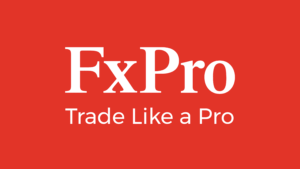SYDNEY/LONDON (Reuters) – Oil prices surged on Monday after Saudi Arabia and other OPEC+ producers announced a surprise cut in their output target, a move that rippled through stock markets and boosted the dollar due to reinvigorated fears about the stickiness of global inflation.
Brent oil futures looked set for its biggest daily percentage gain in around a year, jumping 5.3% to $84.12 a barrel on news OPEC+ would aim to cut output by around 1.16 million barrels per day. U.S. crude climbed 5.75% to $79.99. [O/R]
Goldman Sachs (NYSE:GS) lifted its forecast for Brent to $95 a barrel by the end of the year and to $100 for 2024 following the oil output change, which was announced on Sunday, a day before a virtual meeting of an OPEC+ ministerial panel including Saudi Arabia and Russia.
“I think the alliance wants to make sure that (oil) surplusses don’t extend into the second half of 2023, as they know that most of the economic weakness is going to come then,” said Samy Chaar, chief economist at Lombard Odier.
“It’s simply indicative of the global economy slowing, which is not necessarily bad news as it’s mainly a self-inflicted slowdown caused by the U.S. and Europe to make sure that inflation is brought closer to target.”
Central banks have raised interest rates rapidly in the past year in an effort to bring rampant inflation under control.
The oil producers’ move spread through stock markets. Oil majors BP (NYSE:BP), Shell (LON:RDSa), TotalEnergies and Eni all rose around 4%, sending the European Oil & Gas index up 3.7%, set for its biggest one-day gain since November.
Energy-sensitive stocks dropped, British Airways parent IAG (LON:ICAG) fell 1.5%, while tech shares, which struggle in a higher rate environment, also lost some ground, as markets saw higher oil prices leading to sticker inflation, and, in turn higher-for-longer interest rates.
Britain’s commodities-heavy FTSE 100 rose 0.7%. On a regional and global basis the various moves cancelled each other out with the European STOXX 600 and MSCI’s 47-country all world index trading around flat.
The surge in energy costs somewhat overshadowed Friday’s slower reading for core U.S. inflation, which had seen Wall Street end the month on a strong note. [.N]
S&P 500 futures slipped 0.2% on Monday, while Nasdaq futures lost 0.7%. MSCI’s broadest index of Asia Pacific shares outside Japan lost 0.25%, weighed with tech heavier benchmarks like Hong Kong and Korea underperforming.
FEWER FED CUTS
OPEC+’s move was also playing out in currency and rate markets, as, said ING FX strategist Francesco Pesole, it had “fuelled fears that inflation will prove to be a longer-lasting problem for central banks.”
“The ultra-volatile market pricing for the Fed’s rate path is once again set to be one of the most impacted,” he added.
Yields on U.S. two-year Treasuries rose 4 basis points to 4.11%, while Fed fund futures pared back expectations for rate cuts later in the year.
The market nudged up the probability of the Federal Reserve hiking rates by a quarter point in May to 61% from a probability of 48% on Friday, and had 38 basis points of cuts priced in by year-end.
That in turn helped the dollar gain 0.6% on the Japanese yen to 133.6, while the euro eased as much as 0.5% before rebounding to trade flat at $1.0833. The rise in oil prices is bad news for Japan’s trade balance given it imports most of its energy.
The lift in the dollar and yields nudged gold prices down 0.2% to $1,963 an ounce. [GOL/]
The outlook for U.S. rates could be impacted by data on ISM manufacturing and several pieces of employment data out this week, most significantly Friday’s non-farm payrolls report. Though the impact of Friday’s report could be muted by the Easter holidays.
Central banks in Australia and New Zealand hold policy meetings this week, with the latter expected to hike by another quarter point to 5.0%.
Markets are wagering the Reserve Bank of Australia (RBA) will on Tuesday pause its tightening campaign after 10 straight rises, though analysts are more divided on whether it might still hike.



















